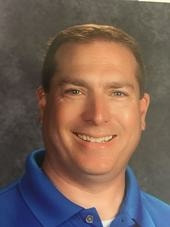|
JAY HOHENSTEIN Jay Hohenstein has been a social studies teacher since 1998 and an Advanced Placement U.S. History teacher since 2005. He has served as an AP reader and table leader at the annual AP reading since 2008. He has been an endorsed College Board consultant since 2015 and has taught many single day and week long training sessions throughout the United States. His experience as a middle school and high school teacher includes implementation of vertical teaming and interdisciplinary instructional practices in the Robbinsdale (MN) School District that have helped increase access and success in the A.P. U.S. History course. |
Jay can be contacted at [email protected]
|
COURSE DESCRIPTION
This institute will be centered around helping teachers identify and understand the skills, concepts, and themes that are required for the study of US History. We will also focus on creating specific teaching strategies to help your students understand the content and successfully communicate that understanding through discussion as well as classroom assessments. A significant component of the week will be the sharing of instructional strategies and materials. Specifically, my goal is to help you develop strategies so your students learn not just the content but also how to demonstrate specific historical skills to satisfy the requirements of our AP writing standards.
New teachers and experienced teachers are welcome for this session. New teachers will receive a lot of materials to help get your AP US History class started, and the opportunity to network with and learn from veteran AP US History teachers will help provide support as you start your school’s APUSH program. Experienced teachers will be able to refine their current practices while networking with other professionals. A survey will be sent to participants prior to our session to tailor our plans to your individual experiences, questions, and requests. Our activities will have many opportunities to specifically address all participant questions to help you feel confident about teaching the APUSH course successfully in the fall.
COURSE AGENDA
Day 1
Day 2
Day 3
Day 4
This institute will be centered around helping teachers identify and understand the skills, concepts, and themes that are required for the study of US History. We will also focus on creating specific teaching strategies to help your students understand the content and successfully communicate that understanding through discussion as well as classroom assessments. A significant component of the week will be the sharing of instructional strategies and materials. Specifically, my goal is to help you develop strategies so your students learn not just the content but also how to demonstrate specific historical skills to satisfy the requirements of our AP writing standards.
New teachers and experienced teachers are welcome for this session. New teachers will receive a lot of materials to help get your AP US History class started, and the opportunity to network with and learn from veteran AP US History teachers will help provide support as you start your school’s APUSH program. Experienced teachers will be able to refine their current practices while networking with other professionals. A survey will be sent to participants prior to our session to tailor our plans to your individual experiences, questions, and requests. Our activities will have many opportunities to specifically address all participant questions to help you feel confident about teaching the APUSH course successfully in the fall.
COURSE AGENDA
Day 1
- A.P. U.S. History course overview
- Historical thinking skills
- Introduction to the AP test
- Pacing and instructional strategies
- Utilizing the AP instructional report to guide instruction
Day 2
- Primary and secondary document analysis strategies
- Short answer essay writing strategies and scoring
- Lesson planning utilizing elements of the AP test in a formative or summative manner
Day 3
- Long answer FRQ and DBQ essay writing strategies
- Deconstructing the AP long answer essay scoring strategies and planning instruction to scaffold the process for students
- Multiple choice test overview
- AP Classroom as a tool to practice elements of the AP test
Day 4
- Formative and summative instructional strategies to teach and assess student writing
- Exploration of AP Central and other digital resources for teaching materials
- Opportunities for participants to create and refine course curriculum and pacing guides
- Sharing of instructional resources and opportunities for collaboration
- Synchronous versus asynchronous teaching and learning strategies for students
- Review strategies for the AP test
